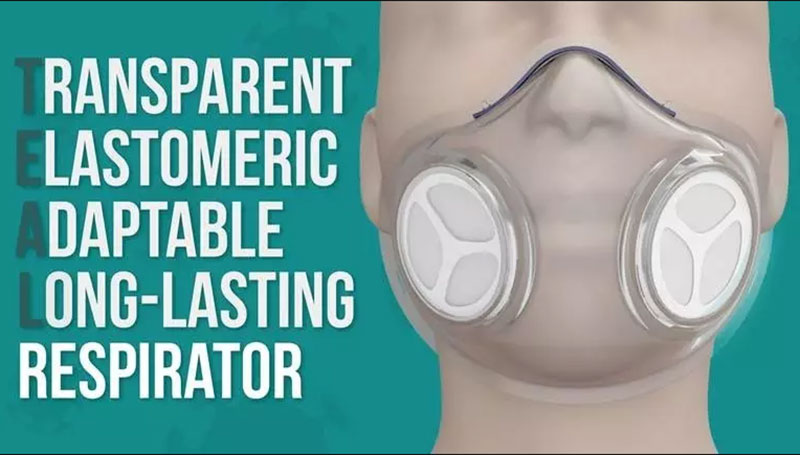Researchers at Brigham and Women’s Hospital and MIT have developed a new reusable respirator that could serve as an alternative to an N95 respirator. The transparent, elastomeric, adaptable, long-lasting (TEAL) respirator has embedded sensors which inform the user if the respirator is on properly and whether the filters are becoming saturated. The TEAL respirator can be sterilized repeatedly, helping to reduce waste and avoid respirator shortages.
Related Huami’s Amazfit Aeri Mask Self-Disinfects and Unlocks Your Phone With Face ID
The team tested the respirator at the Brigham and at Massachusetts General Hospital (MGH), and reports a 100% success rate for fit testing among 40 participants, with feedback demonstrating exceptional fit, breathability and filter exchange. Results are published in ACS Pharmacology & Translational Science.
“During the COVID-19 pandemic, the need for respirators and masks has been urgent. Our team has worked to develop a respirator platform that not only fits comfortably and snugly but can also be sterilized and re-sterilized,” said corresponding author Giovanni Traverso, MB, BChir, PhD, a gastroenterologist and biomedical engineer in the Division of Gastroenterology at the Brigham and assistant professor in the Department of Mechanical Engineering at MIT. “In this study, we looked at up to 100 re-sterilization cycles and found that the TEAL respirator we’ve designed can withstand that.”
The team evaluated 7 different methods for repeatedly sterilizing the TEAL respirator, including 100 cycles of autoclaving, 100 cycles of microwaving, prolonged exposure to UV treatment, high heat (200 °C), 100 percent isopropyl alcohol, and bleach. The researchers found minimal change to the respirator’s elasticity after repeated sterilization, according to a news release.

The TEAL respirator is comprised of a transparent, stretchy shell that can be sterilized and filters that can be replaced by the user. The team found that all participants could successfully replace their filters and most participants (90 percent) reported an excellent or good fit for the respirator.
“TEAL is the first elastomeric respirator designed for use in a surgical setting, preserving the sterile field and providing the user a comfortable, reusable personal protective equipment solution,” said co-author Adam Wentworth, MS, a senior research engineer in the Brigham’s Division of Gastroenterology and the Traverso lab.
Related Face Masks Made Of Electroceutical Fabric Kills Coronavirus On Contact
The respirator’s sensors can help detect respiratory rate, exhalation temperature, and exhalation and inhalation pressures. The team also added a thermochromic coating to the respirator — a coating that changes color from black to pink when the respirator is in direct contact with a person’s face and therefore has a snug fit.
The researchers filed multiple patents surrounding the respirator and sensors. In addition, Wentworth, Byrne and Traverso have a financial interest in TEAL Bio, a biotechnology company focused on developing the next generation of personal protective equipment.









